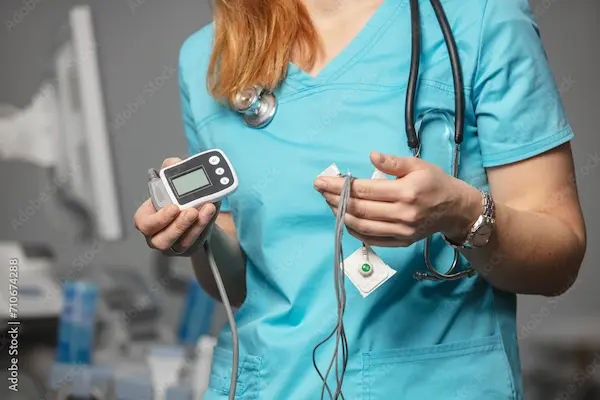- Male
- 30 Years
- 22/01/2025
My normal heart rate, as shown on my oximeter, is always over 100, usually around 102 or 104 beats per minute. Is this something I should be concerned about, or is it considered normal?
Answered by 1 Apollo Doctors
Ecg is advised to the patient for any arrythmias.
Dr. Ibrahim Suggests...
Consult a Cardiologist
Answered 04/07/2025
0
0

More Cardiology Health Queries
View allI have a large ASD and my doctor recommended open heart surgery to place a device. Can you explain more about how this procedure works and what to expect? I'm feeling quite nervous about it OR My doctor said I need open heart surgery for a large ASD to fix it with a device. How risky is this procedure and what's the recovery like? OR I was diagnosed with a large ASD and told open heart surgery is needed for device closure. Are there other options or is this the only way? OR Can you tell me more about open heart surgery for ASD device closure? My doctor suggested it but I'm unsure about the long-term effects OR How safe is open heart surgery for ASD repair with a device? I'm worried about complications since mine is quite large
cardiologist opinion is advised for the tt of vsd.
Answered by 1 Apollo Doctors
I'm experiencing chest pain after every time I have intercourse, and I'm starting to worry. I have RHD, so I'm not sure if this is normal or if it's putting extra pressure on my heart. Can you help me understand what's going on?
Having chest pain after intercourse can be concerning, especially for a patient with Rheumatic Heart Disease (RHD). It is important to rule out any serious underlying causes for the chest pain. In your case, it is possible that the physical exertion during intercourse is putting extra strain on your heart, leading to chest pain. To help alleviate the chest pain and reduce the strain on your heart, you can take Nitroglycerin sublingual tablets as needed for chest pain. The usual dosage is 0.3 to 0.6 mg sublingually every 5 minutes as necessary, up to 3 doses. It is important to consult with your healthcare provider to discuss your symptoms and determine the best course of action.
Answered by 1 Apollo Doctors
I'm really relieved that my husband's chest X-ray came back normal, but I'm a bit concerned about something mentioned in the report. It says there are mild vascular markings prominent bilaterally. What does that actually mean? Should I be worried about this at all?
It suggests an acute infection in the lungs, eg-bronchitis.An atibiotic therapy for atleast 5 days is advised tab augmentin 625 ,orally ,thrice daily is advised to the patient..
Answered by 1 Apollo Doctors
Disclaimer: Answers on Apollo 247 are not intended to replace your doctor advice. Always seek help of a professional doctor in case of an medical emergency or ailment.


.webp)

